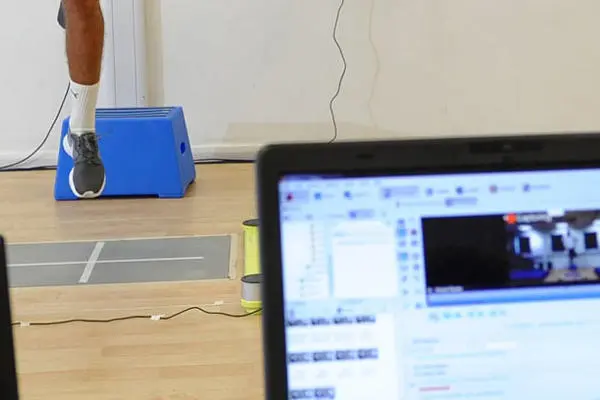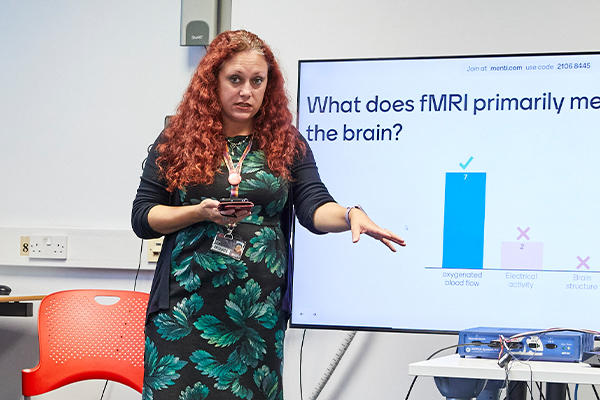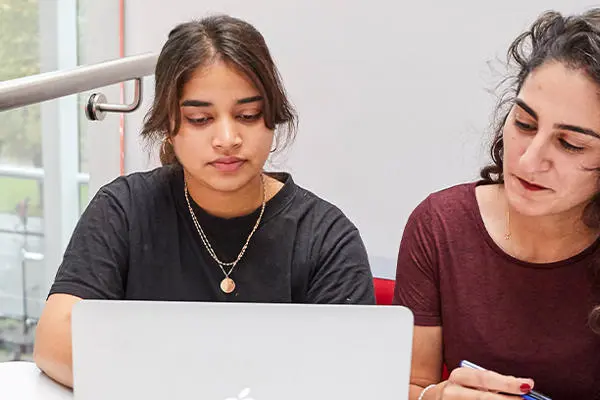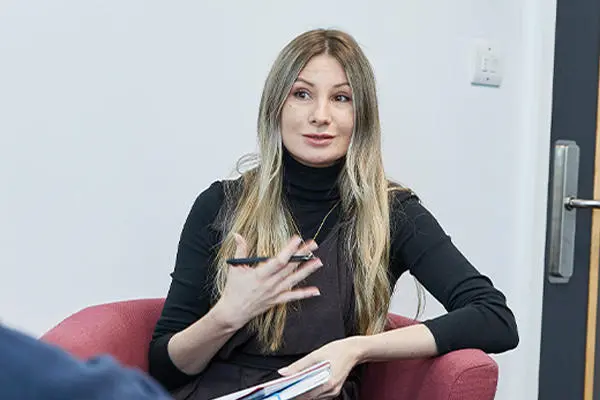
We caught up with Olivia, whose passion for sports psychology was sparked during her recovery from a long-term injury. After experiencing the powerful impact of working with a psychologist firsthand, she was inspired to help other athletes thrive, mentally and physically, through the power of sport.
Why did you choose Solent?
I chose Solent because it offered exactly what I was looking for in a university experience. The course modules immediately stood out, especially the focus on sport psychology and its practical application—an area I’m really passionate about.
The facilities were another major draw; the modern sports complex and the Spark building offer a professional and motivating environment that truly supports my learning.
What’s life like as a Solent student, and what do you like best about it?
Life at Solent is vibrant and supportive. I feel encouraged both academically and personally, with plenty of opportunities to prepare for life beyond university. One of the best parts is the range of societies available—it’s a great way to meet new people, try new things, and make the most of the student experience.
What’s the best thing about your course lecturers?
One of the best things about the lecturers is how approachable and supportive they are. No matter the topic, there’s always someone you can turn to for support. They bring their professional experience into the classroom, making the content engaging and relevant. We’re also offered extra opportunities to enhance our learning—like taking part in college taster days, school visits, and workshops.


The sports complex is modern and fully equipped with everything we need to train and learn effectively. Having access to such high-quality facilities makes a big difference.
Do you feel like your studies are preparing you for a career in the industry?
Absolutely. The course has given me a strong foundation for a career in sports psychology. One of the most valuable parts has been the work experience requirement. I had the chance to work with the Army Women’s football team, which pushed me to apply my knowledge in a real-world, high-performance setting. It helped me build confidence, understand professional standards, and gave me even more motivation to pursue this career path.
Can you talk a bit about any opportunities you’ve had to get practical experience?
Gaining experience in this field can be tough, so I’ve taken every opportunity I could. One of the most valuable experiences I’ve had was working with the Army women’s football team—it gave me real insight into applying sports psychology in elite sport.
I’ve also delivered engaging sports psychology sessions at college taster days and school visits, which helped build my confidence and communication skills.
Another highlight was supporting runners at the ABP Southampton Marathon, where I applied what I’d learned to help participants manage pre-race nerves and focus on what they could control.
Coming up, I’ll be working as a Sport and Exercise Psychology Research Assistant with Shakiba Moghadam, where I’ll gain hands-on experience in data collection and research practices.
Each of these experiences has helped shape my skills and understanding of the field.
Tell us about your recent project providing psychological support to the British Army women’s football team
Over the past few months, I’ve had the incredible opportunity to work with the British Army women’s football team in a performance psychology support role, thanks to my lecturer, Tom Doncom. I’ve helped plan and co-deliver workshops and even sat in on one-to-one support sessions with players who wanted some extra support in specific areas. This gave me a real understanding of the kind of support sports psychologists provide.
I was also able to collect my dissertation data early, focusing on the role of team togetherness. Some highlights include being invited to The Royal Military Academy Sandhurst and sitting in the dugout during matches against the Navy and RAF.
As a footballer myself, it’s been amazing to apply my knowledge in such a positive, high-performance environment. It’s experiences like this that fuel my passion for supporting athletes through sports psychology.


Whether it’s academic support or personal wellbeing, there’s always been someone to turn to. The staff are approachable and understanding and just knowing that support is there has helped me stay focused and motivated throughout my studies.
What’s the most important thing you’ve learned so far?
One of the biggest lessons I’ve learned is the importance of adaptability. In sport, things don’t always go to plan and being able to adjust quickly while staying calm is a crucial skill. Looking ahead, I’m excited to keep gaining experience in elite environments and hope to expand into other sports. Every opportunity brings a new challenge, and I’m looking forward to continuing to grow both personally and professionally
You are part of the Sport Excellence Programme—how do you balance uni work with your sporting career?
Time management has been key. Planning ahead and understanding my schedule helps me stay on top of both academic and sporting commitments without feeling overwhelmed.
The Sport Excellence Programme has been a huge support, offering regular check-ins, mentoring, and both physical and psychological guidance. Their passion for helping student-athletes succeed in a dual career has made a real difference.
What will you take away from your time at Solent?
The connections I’ve made have been one of the most valuable parts of my time here. I’ve built strong friendships, especially with my teammates on the uni women’s football team, and developed great relationships with lecturers and staff. I’ve also had the chance to apply what I’ve learned in real-world settings, which has deepened my passion for pursuing a career in sports psychology.
Any standout moments from your football journey?
One of my sporting highlights has been playing at the Vitality Stadium over the past two seasons, where we broke attendance records. It’s been an unforgettable experience and a real privilege to be part of.
What are your career plans?
My goal is to become a qualified sports psychologist. I’m passionate about supporting athletes’ mental wellbeing and helping them reach their full potential. My experience at Solent, especially working with the British Army women’s football team, has only strengthened that drive. I plan to continue gaining experience and work towards the qualifications needed to become fully accredited in the field.














